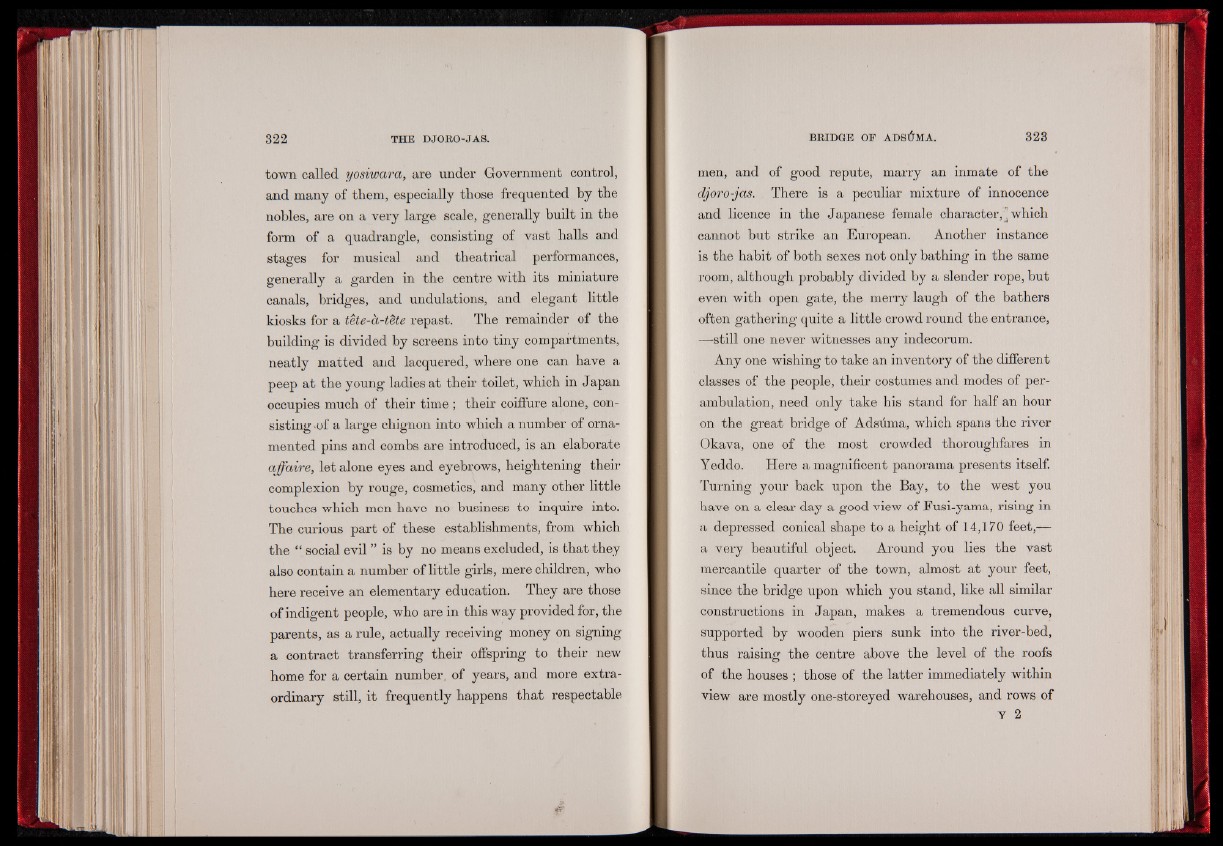
322 THE DJORO-JAS.
town called yosiwara, are under Government control,
and many of them, especially those frequented by the
nobles, are on a very large scale, generally built in the
form of a quadrangle, consisting of vast halls and
stages for musical and theatrical performances,
generally a garden in the centre with its miniature
canals, bridges, and undulations, and elegant little
kiosks for a tète-à-tète repast. The remainder of the
building is divided by screens into tiny compartments,
neatly matted and lacquered, where one can have a
peep at the young ladies at their toilet, which in Japan
occupies much of their time ; their coiffure alone, consisting
-of a large chignon into which a number of ornamented
pins and combs are introduced, is an elaborate
affaire, let alone eyes and eyebrows, heightening their
complexion by rouge, cosmetics, and many other little
touches which men have no business to inquire into.
The curious part of these establishments, from which
the “ social evil ” is by no means excluded, is that they
also contain a number of little girls, mere children, who
here receive an elementary education. They are those
of indigent people, who are in this way provided for, the
parents, as a rule, actually receiving money on signing
a contract transferring their offspring to their new
home for a certain number, of years, and more extraordinary
still, it frequently happens that respectable
BRIDGE OE ADSÌTMA. 323
men, and of good repute, marry an inmate of the
djoro-jas. There is a peculiar mixture of innocence
and licence in the Japanese female character,^ which
cannot but strike an European. Another instance
is the habit of both sexes not only bathing in the same
room, although probably divided by a slender rope, but
even with open gate, the merry laugh of the bathers
often gathering quite a little crowd round the entrance,
—still one never witnesses any indecorum.
Any one wishing to take an inventory of the different
classes of the people, their costumes and modes of perambulation,
need only take his stand for half an hour
on the great bridge of Adsuma, which spans the river
Okava, one of the most crowded thoroughfares in
Yeddo. Here a magnificent panorama presents itself.
Turning your back upon the Bay, to the west you
have on a clear day a good view of Fusi-yama, rising in
a depressed conical shape to a height of 14,170 feet,—
a very beautiful object. Around you lies the vast
mercantile quarter of the town, almost at your feet,
since the bridge upon which you stand, like all similar
constructions in Japan, makes a tremendous curve,
supported by wooden piers sunk into the river-bed,
thus raising the centre above the level of the roofs
of the houses ; those of the latter immediately within
view are mostly one-storeyed warehouses, and rows of
y 2